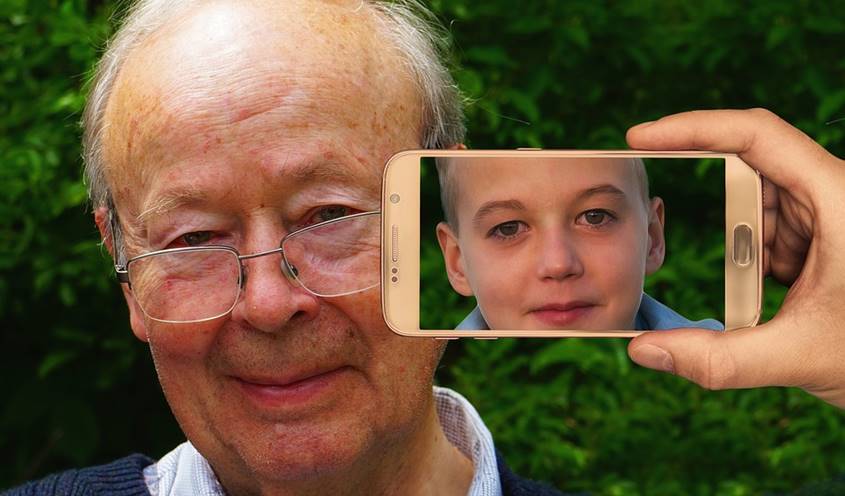
Generally, I think we need to live our life based on our own judgment by developing a sense of self that functions as a moral GPS (or compass), and not by other’s judgment or external rules and beliefs. In life coaching, the task of finding who we are relies on our ability to strip away other’s expectations and what we want people to think of us.
When we do that, we learn to listen to our inner voice and “redesign” ourselves.
This process of redesigning who we are happens in the context of being part of a society, because connections and relationships form a huge part of our experience.
When we “bare ourselves” and take off the “clothes” of what others think of us, the “shoes” of where they think we should go, the “coat” of others’ compliments or criticism, we need to put on new “clothes” that we love and feel comfortable with to warm us through life’s challenges.
Sometimes, looking at ourselves from the outside, can help us see things with fresh eyes.
In this activity, I ask my clients to write 100 things they would want people to think of them. However, rather than making a wish list that gives some other person the power over what we think of ourselves, we look at other people to find qualities that we appreciate and want to adopt, so when others look at us, they will be inspired, just like we were.
This is a similar activity to “What would you want people to say in your eulogy?” but instead of waiting for you to die, in this activity, your current self-image dies, and you are born again into a new concept of you that will move you forward, towards a better version of yourself.
If you are familiar with this series, you know why we always aim for 100. Listing 100 items is hard and requires you to go deeper and deeper into your mind and discover things that were otherwise hidden from you.
The first 10 items will be easy, the next 10 be harder, and so on. Everything you write beyond 50 will be very deep and meaningful.
If you can’t write the whole list in one go, that’s OK. Leave it and go back to it later and aim for 100 again. Push yourself until your list contains 100 items.
If you need to talk to others about what they would want people to think about them, do it. Talking to others can give great ideas and great insights. Remember, the process is important, not just the outcome.

This list does not mean that everyone in your life thinks the same about you. If one person in your life thinks that about you, it’s enough. It means you were able to trigger those thoughts in one person. One person could see this thing in you.
Don’t fall into the “majority rules” trap. For you to think a certain way about yourself, you don’t need all, or even most people to think that way. One person is enough!
It’s the same in the other direction. If one person said about you that you are not a good friend, this will bother you, although it doesn’t mean that you’re not a good friend.
So, we are greatly bothered by what one person says something negative about us. Therefore, we should also care about one person’s opinion when it’s positive.
If one person can see something in you, others will see it when they are ready.
When you make the list, avoid dependency statements. We become dependent on what people think of us when we don’t think of ourselves that way.
For example, if I think of myself as friendly, it doesn’t really matter when others tell me that I am, but if I want to think of myself as friendly, I first want to be considered friendly and work towards feeling friendly without depending on what others say.
Tips for making the list of things you want others to think of you
- Look at people are around you and consider the good things you think of them. Which of those things would you want people to think of you? It is better to think of them as inspiring people than to be jealous of them.
- Compliments are thoughts we say out loud that send good vibes to the person we compliment and to those around who hear them. If thoughts and feelings send energy, that gives a good feeling to everyone, including us. Think of compliments you give others, or that you hear others giving. Which of those would you want people to give you?
- Think of inspiring people (they can be part of your life, historical figures or current celebrities) that you would want to be like. I find that discussing celebrity biographies with my children gives them a lot to think about. When we talk about Shakira, we don’t only talk about her singing voice and fame. We talk more about how persistent she was and how dedicated she was to her art, and this inspires us.
- Think of your own parents’ behavior. What are the things you appreciate about them that you want your kids to think about you? Our parents contribute greatly to our sense of identity. They contribute both good things and not-so-good things. We need to remember that we don’t have to take everything they have contributed. We can choose to let go of the things we don’t want to carry with us and adopt the things we do. Focus on the good things that you wish to take with you and that you want your kids to say about you, rather than the things you disrespect. In life, we get what we focus on. If you focus on things you hate about your parents, that’s what you’ll get. If you focus on the good things you love and appreciate, you’ll get that.

- Think of things you appreciate about your friends that you want your friends to appreciate about you. Friendship is a bond between people. Over the years, we make many friends. I think of friends as people who come into our lives for a reason. We learn from them something and keep going on the journey of life. Some friends stay longer, and some are here for a short time, but every one of them can give us something meaningful. So, again, don’t be tempted to go to bad memories and focus on the learning.
- If you died tomorrow (and let’s hope you don’t), who would you want to attend your funeral and why?
- If you died the day after (and let’s hope this doesn’t happen either), what things would you want to be said at your funeral? The dying activity is part of many personal development programs. In Buddhism, it is a big part of the work to let go of attachments – letting go of the attachment to life. Buddhist monks go through a process of imaging themselves dead, rotting with all the nasty parts of it. This process is like the process I take my clients through. The Buddhist monks strip away their body, until they find their own core, and my clients strip away others to find who they really are.
The idea in this activity is to redesign your life without having to accept that you are what you think of yourself now or what other people think of you. We can change who we are at any time with a choice.
The death activities are supposed to get you to the edge and let you experience completion – an ending that you are happy with. If you’re not happy with it, it will encourage you to do something about it right away.
When you complete this list, your mind will start working towards how to bring yourself to that stage that people think of you like that. You can take 3 items from this list and actively work towards them. When you’re done, take the next 3, and so on.
Happy list writing,
Ronit
This post is part of the series Make a List:
- Make a list: List Making
- Make a list: About Myself
- Make a list: Friends and Friendships
- 100 Things I Want to Be, Do and Have in My Lifetime
- 100 Things that Make Me Happy
- Make a list: Childhood Memories
- How to Clean Away Resentment and Be Happy
- 100 Ways to Say “I Love You!”
- Make a list: What I like about me
- Make a list: Birthday Presents to Ask for
- Make a list: Improve My Life
- Make a list: Things to tell my parents
- Make a list: Beliefs about Money
- 100 Feelings I Want to Feel (and how to feel them)
- Make a list: If I Could Live Forever
- Make a list: Beliefs about Kids
- Make a list: Beliefs about Kids cont.
- Make a list: Events that Have Shaped Your Life
- Make a list: Ways to be kind
- Make a list: Be More Productive
- Make a list: Mistakes (and what I can learn from them)
- Make a list: Expectations
- Make a list: Beliefs about Traveling
- Make a list: Rules I Follow
- Make a list: Good Parenting Qualities
- Make a list: Excuses
- Make a list: Quotes to live by
- Make a list: How to use my time better
- If I Were Santa Claus
- What I Would Do If I Had One Year to Live
- 100 Things that Make Me Happy
- Make a list: Movies I loved
- Make a List: My Fears
- Make a List: Find your Happy-ism
- Make a List: Inspiring People
- Make a List: Books that have changed my life
- Make a list: Inspiring Movies
- Things to Be Grateful for
- Make a List: Ronit’s Gratitude Examples List
- Make a list: Life Lessons Learned
- Make a List: Self-Kindness
- Make a List: 100 Ways to Be Kind to Myself
- 100 Things I Want People to Think of Me
- Make a List: Judgment of Right from Wrong
- Make a List: 100 Reasons to Be Wealthy
- 100 Great Insights I Got from the Coronavirus
- How to Make Every Relationship You Want Good
- If I Only Knew: How to Learn from the Past
- Happy, Healthy, Successful Life Formula: Knowing vs. Doing












